There’s an interesting technicality that has caused the United States Department of Transportation (DOT) to fine Emirates Airline for using Iraq airspace at too low of an altitude.
In this post:
Emirates fined for flying too low over Iraq
For several years now, the United States Federal Aviation Administration (FAA) has prohibited airlines from operating flights in Iraq airspace at an altitude below 32,000 feet, over safety concerns. This restriction specifically applies to flights operated and/or marketed by US airlines. This means that it includes flights operated by foreign airlines that US airlines codeshare on.
Emirates is now facing a fine over this. The DOT is fining Emirates $1.8 million for using Iraq airspace at an altitude of below 32,000 feet on a “significant number” of flights between December 2021 and August 2022.
Now, this FAA restriction wouldn’t ordinarily apply to Emirates, except for the fact that Emirates codeshares with US airlines. At the time, Emirates was codesharing with JetBlue on these flights (that codeshare has ended, as Emirates has ramped up its partnership with United).
Interestingly, it would appear that Emirates didn’t intend to violate these rules, at least on paper. The airline always filed flight plans to stay above 32,000 feet. The airline would only descend below that altitude when ordered to do so by air traffic control.
It’s not clear if Emirates pilots just weren’t aware that they shouldn’t accept instructions to go below 32,000 feet, or if that was just unavoidable. Regardless, no airline should be surprised by air traffic control asking them to change altitude.
Of the $1.8 million fine, $300K will be taken off if the airline doesn’t violate this rule in the next year, lowering the total amount to $1.5 million.
This isn’t the first time that Emirates has violated US policies in this way. Back in 2020, the DOT fined Emirates $400K for violating Iran airspace restrictions while codesharing with a US airline. The airline claimed that the oversight was continuing to codeshare with JetBlue, and the response was that Emirates immediately ceased its codeshare with JetBlue on relevant flights.
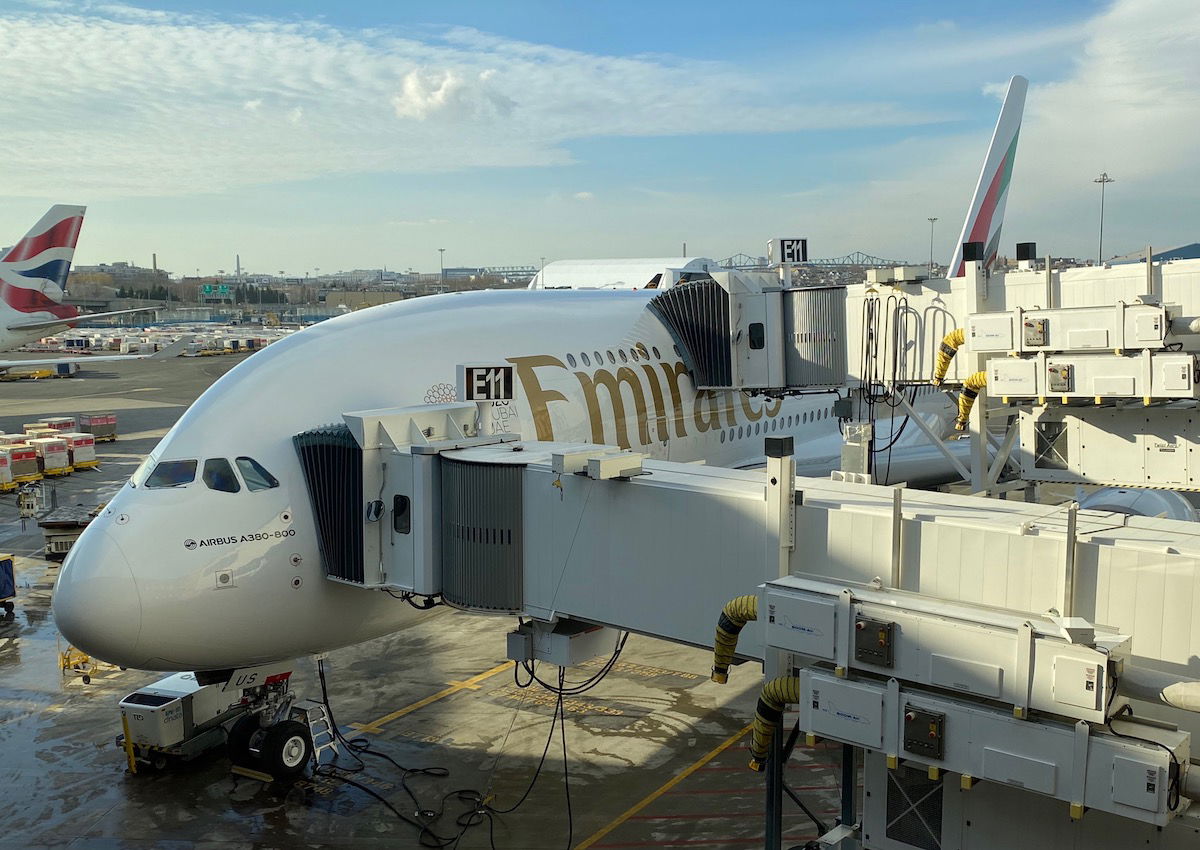
This gets at the complexity of codeshares
Airlines have all kinds of different ways that they cooperate, and I think restrictions like these really get at the complexities of these arrangements. With a codeshare, an airline places its “code” on the flight of another airline.
I mean, no one thinks they’re actually flying JetBlue from Dubai to the United States, even if the flight has a “B6” code, with a note about the flight being operated by Emirates. This fine wouldn’t have happened if a ticket was simply booked as part of an interline agreement, whereby two or more carriers are on a single ticket with their respective flight numbers.
In recent years, codesharing has become more complicated, given how these flights are treated for regulatory reasons. For example, we all know how US airlines can’t use Russian airspace right now (and that’s a reciprocal agreement). These restrictions similarly apply to codeshare flights.
For example, Qatar Airways is allowed to use Russian airspace, but not on routes where it codeshares with US airlines. So you’ll notice that Qatar Airways codeshares with American on flights to the US East Coast, while it doesn’t on flights to the US West Coast. That’s because Qatar Airways doesn’t use Russian airspace on East Coast flights, while it does on West Coast flights.
At some point the distinction becomes kind of silly, no? I get why things are this way, and how you have to draw the line somewhere. But practically speaking:
- I can go to American’s website and book an award flight on Qatar Airways from Doha to Los Angeles, and that’s allowed to use Russian airspace
- If I go to American’s website and book a revenue flight on Qatar Airways from Doha to New York that’s a codeshare, that’s not allowed to use Russian airspace
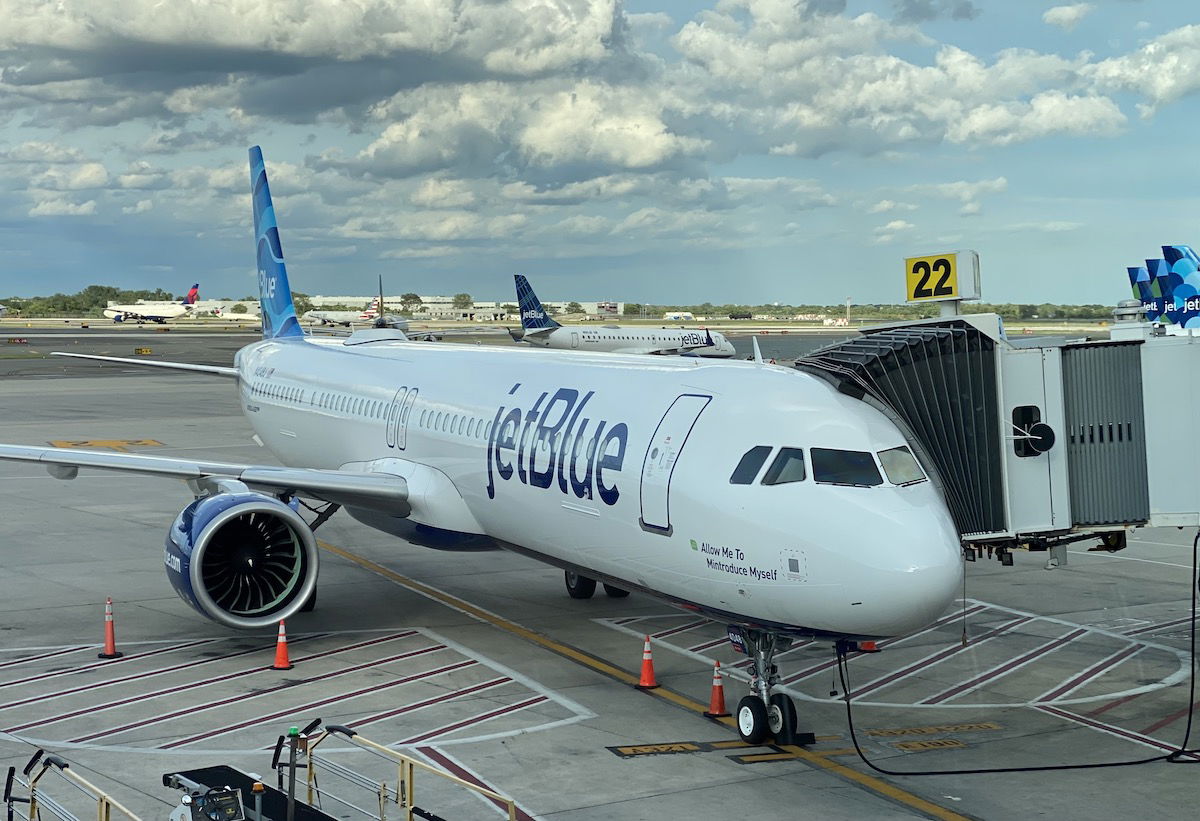
Bottom line
The United States has fined Emirates $1.8 million for using Iraq airspace at too low of an altitude while operating flights to the United States that were also a JetBlue codeshare. US airlines aren’t allowed to fly at an altitude of under 32,000 feet in Iraq, and that includes codeshare flights of US airlines operated by other airlines.
It appears Emirates didn’t intend to violate this rule, and all flight plans were filed to be at above 32,000 feet. However, due to air traffic control instructions, many flights did operate in airspace prohibited by the US.
What do you make of this Emirates airspace violation?
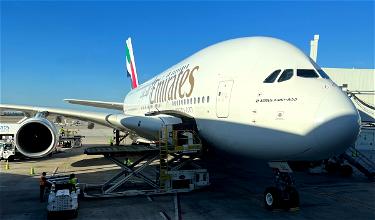

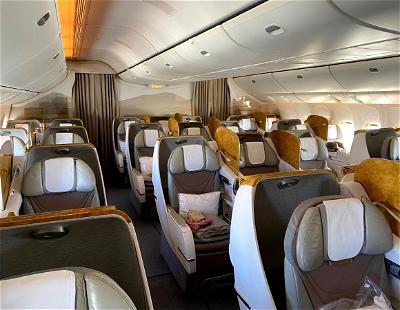
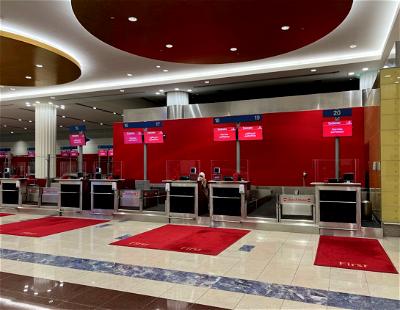
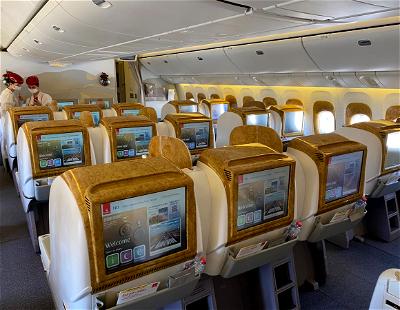
First the US invades and illegally occupies Iraq on a pack of lies, then it finances aparthed, occupation and genocide against Palestinians. Now it judges Middle Eastern airlines for flying too low over a country it illegally occupied. Scr*w them I say.
$1.8M, huh? Probably much less than they spend to monopolize an entire vintage of Le Grande Plonk Chateau Frou-Frou for their first class passengers.
Pretty sure it breaks down to less than $1 per passenger flown to the US, roundtrip. Take a bottle of champagne off every flight and before you know it they'll be right back where they started financially
The world's biggest bully has to do what a bully has to do.
Make your own playground rule and execute lunch money extortion.
The fine amount is tiny and irrelevant -- <$1 per passenger flown in 2023 -- so by no means some huge extortion ;) at such a small amount it seems like DOT just wants to remind Emirates they don't like what Emirates has been up to in general on US flights. Like Emirates would have to cut West Coast flights if they were banned from using Russian airspace but after the Air India Magadan incident...
The fine amount is tiny and irrelevant -- <$1 per passenger flown in 2023 -- so by no means some huge extortion ;) at such a small amount it seems like DOT just wants to remind Emirates they don't like what Emirates has been up to in general on US flights. Like Emirates would have to cut West Coast flights if they were banned from using Russian airspace but after the Air India Magadan incident it's clear they'd rather Emirates overfly Europe instead on the East Coast rotations -- and looking at EK203/EK237, Emirates oscillates between choosing Europe overflights (e.g. 11-JUN-24 EK203) and Russian ones (e.g. 14-JUN-24 EK203) so this is well within their capabilities. There are numerous other small concerns. Not like Emirates or DOT is significantly sweating this either way
Seems fair in the context that these flights are to be flown under US regulations because of the codeshare agreement and the fact that they were going to the USA, Emirates was also clearly aware of the rule (at least management) by the fact that flight plans were to be above 32,000 feet.
The US funds Israeli genocide against the Palestinians, invaded and destroyed Iraq over a pack of lies two decades ago and never owned up to its laundry list of crimes. Now they are finding airlines for flying too low over a country they spread carnage in ?
Screw them
So potentially endangering multitudes of US lives only is worth 1.8 mill USD. What is that fine, 10 bucks per person put in danger?
Shows how much we are valued!
There are 330M of you, the world wouldn't miss a full A380 or two.
Thats completely unnecessary. I’m pretty sure a bunch of people would miss each and every person on that plane, as would be true for people from any other country. As a whole Americans may be obnoxious at times. But you set a high bar for offensive with that comment.
You don't dig deep enough to point out WHY these tickets need a U.S. carrier flight number, which is because of sham U.S. Government funding rules.
A few years ago I was looking at flights and you could book the Etihad flight from Dulles to Abu Dhabi for $1,200. I could book that exact same flight through American with an American flight number, that was the only difference, and the flight was $1,700. Why...
You don't dig deep enough to point out WHY these tickets need a U.S. carrier flight number, which is because of sham U.S. Government funding rules.
A few years ago I was looking at flights and you could book the Etihad flight from Dulles to Abu Dhabi for $1,200. I could book that exact same flight through American with an American flight number, that was the only difference, and the flight was $1,700. Why would anyone pay the $1,700? The Fly America Act. U.S. Government has rules stating that its employees and the projects it funds have to fly on U.S. carriers unless it's not an option, so the U.S. Government would not allow you to pay $1,200 to fly to Abu Dhabi but would allow you to pay $1,700 because then it is a "U.S. carrier" at that point because of the flight number, giving American Airlines $500 for doing absolutely nothing but existing. This did not give an American carrier any extra business at all, it's just a legal loophole that Congress allows to get around its own rules, at a higher cost to taxpayers.
And that's the rest of the story.
Airlines set whatever prices they set for codeshares. Government travel is not the reason that codeshares exist. It is accurate that government employees are required to book with us carriers when possible and that foes include codeshares. But the government also negotiates rates for each city pair. So, while the originating carrier may charge $1200 and codeshare is $1700, the government may only be paying $500. And the gov gets two prices, one of which....
Airlines set whatever prices they set for codeshares. Government travel is not the reason that codeshares exist. It is accurate that government employees are required to book with us carriers when possible and that foes include codeshares. But the government also negotiates rates for each city pair. So, while the originating carrier may charge $1200 and codeshare is $1700, the government may only be paying $500. And the gov gets two prices, one of which. Is a last seat availability, usually far below the published rates. For example, AA iad-lhr (a BA code share) $310 for all of fy 24
You would be suprised. My boomer parents don't understand code shares or partners. I always have to explain to them just becuase you booked x airline, doesn't mean you are actually flying them.
As long as they are flying Delta metal, who cares who the marketing carrier is?
@Andrew gets it -- This kind of issue seems almost exclusive to the traveling public at large who don't know what a codeshare is. On OMAAT it seems rare to come across someone who does not know this stuff but we spend our time understanding this industry -- I'm aware of many occasional flyers who would not realize their flight is a codeshare.
Wouldn't happen on Delta, obvi